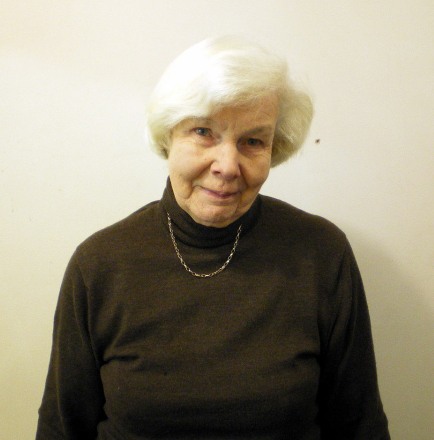I know some of you have heard me speak about my work with Save the Children so I hope you won’t be bored.
Everyone will have heard of Save the Children before – they are always putting leaflets through the letterbox along with other charities. I must take you back a few years now, in fact quite a long time as I am now 88 years old and trained as a nurse when I was 18/19 at Barts Hospital in London ending up as a staff nurse. I always thought my career was going to be in nursing but someone had a different idea. I had a great friend, a Salvation Army officer, who I met up with often and we used to go out for a meal. The winter in London was cold and miserable and after the war a lot of small wooden huts had appeared. This particular evening one of the huts was advertising a talk on Save the Children. I didn’t know much about Save the Children but underneath it said with a free cup of tea and a bun so we decided to go into the lovely warm hall and listened to a good lecture followed by a film. The lecture was all about Save the Children and what they did overseas. I was surprised it was not a thing you hear a great deal about. I remember very clearly the film giving a picture of what they did and a picture of a little black child which came closer and closer on the screen and you could see the tears in his eyes and on his cheeks and then his broad broad smile as he had some food in his hand probably his first food for a long time. Those eyes seemed to catch mine in the Hall and I knew that this was the way my life was going and I had to find out more about Save the Children and offer to work for them. This took a long time and lots of interviews, a lot of talking and discussions and eventually I was accepted to work overseas.
I think I hoped my first posting would be to Africa. I had a calling to Africa and felt I wanted to go there. As you may know I was born in the Far East and my home as a child was in China where my parents were medical missionaries and I had lived there for nearly 10 years and spoke the language so it was pretty obvious I was going to be sent to the Far East and sure enough I was posted to Hong Kong across the water to Kowloon in about 1965. Lots of families of boat people were coming into Hong Kong leaving their own countries for some reason or another hoping to find safety and perhaps better homes and jobs in Hong Kong and our job was to deal with these people, not an easy one. They came to us with nothing. They came in boats, in some cases just women and children, and all they had was what they stood up in but what they did bring with them was their opium so we were virtually dealing with drug addicts. Not an easy job. Most of them congregated in Kowloon, we had cases of cholera and dysentery which we were having to deal with. These people were very friendly people but our job was to try and wean them off the drug gradually. We couldn’t do this completely but enough for them to get work in the various hotels in Hong Kong. I was in that area for around 18 months and eventually having trained others to take over my work I was then sent to India.
India was a different kind of life. I was near Bombay (now known as Mumbai) 4 miles out of the city in a dirty area full of children roaming around dustbins where they could grab food. It was a very large area where obviously at some time all the rubbish had been dumped. These children would go through it to try and salvage things that they could sell to get a meal at the end of the day. It was a heart-breaking job and we tried hard to get the children into homes but it was a difficult job as very often the children didn’t want to be found. They were frightened as their living and livelihood came from where they rummaged in this rubbish and that’s where their food came from at the end of the day and they didn’t trust us. It was difficult and very hard work.
From there I was sent down to Brazil. This was a very different country where you had the rich and the poor. The rich were very rich people coming on holiday to the large hotels and then just down the road the poorer people. The children would roam in the streets, turned out at perhaps 5 or 6 years old and they would go and try and find food out of the dustbins. They would go and sleep during the day and at night come out and search the dustbins to see if there was anything they could hide or take away or eat. If the Police saw them they would open fire and we tackled the Police about this and they answered “oh well that’s one less child to bother with”.
- To be continued in the next issue
This is a record of a talk given by Audrey Mentor on Monday 17 December 2018.
Many people will know Audrey already. She has had a wonderful and interesting life working in China and Africa and she has very kindly agreed to come here today to tell us about her life and Jane Cook is going to write it all down for posterity.
Audrey thanked everyone for inviting her to talk this afternoon.





